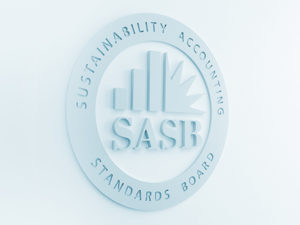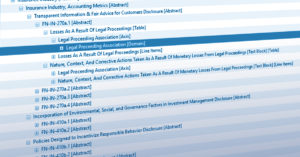Co-authored by Laura Tyson and Robert Herz. Robert Herz formerly chaired the Financial Accounting Standards Board. Both are directors of the SASB Foundation.
This op-ed was originally published in the Financial Times on January 6, 2021.
Incoming president can use existing regulatory powers to unlock sustainable growth.
As US president-elect Joe Biden prepares to take office, many see the challenges he faces as similar to those confronted by Franklin Roosevelt in 1933. Just as Roosevelt’s ambitious proposals were essential to pulling America out of the Depression, an equally ambitious agenda from Mr. Biden is essential to rescue the country from the Covid-19 pandemic and combat climate change.
Ideally, Mr. Biden would be able to win bipartisan support for his policies. But, even with a sharply divided US Congress, the Biden administration can make significant progress on issues such as climate risk by using executive orders and existing regulatory powers.
A few months ago, a report from the Commodity Futures Trading Commission highlighted the powers available. It noted that financial regulators have “broad authority” to require disclosure of material information to investors, customers, and counterparties — including that on climate risks.
It is, of course, easy to dismiss disclosure as a negligible rather than a transformational solution. But that is to ignore history. With the 1933 Securities Act and the 1934 Securities Exchange Act, Roosevelt helped create the market infrastructure that is still used today to price risks and opportunities efficiently — guiding capital toward the highest risk-adjusted returns.
The same principle of transparency as an engine of change can now be applied to climate and other environmental, social and governance issues.
As Larry Fink, head of the world’s largest fund manager BlackRock, told chief executives last year: “climate risk is investment risk”. Standardised disclosure of climate risk would mean investors can allocate capital to the best performers, and companies can benchmark their climate performance against peers. The result is a “virtuous cycle” in which capital markets become a powerful vehicle driving improved climate outcomes.
However, a report from the US Government Accountability Office reveals that climate risk disclosures still lack consistency, comparability and reliability — impeding the ability of markets to allocate resources effectively.
To address these shortcomings, the Securities and Exchange Commission should follow the lead of the UK’s Financial Reporting Council. In November, the latter urged companies to report climate information in line with the recommendations of the Task Force on Climate-related Financial Disclosures, and the independent non-profit Sustainability Accounting Standards Board.
As a first step, the SEC should urge US companies to adopt these measures. To be clear, this SEC response would be motivated not by a political agenda but by genuine investor demand for transparency on financial performance.
Already, 55 leading asset owners and asset managers — representing $41tn of assets under management — have asked companies to use SASB standards because they “improve understanding of company performance on ESG issues most relevant to long-term value creation”. At the same time, financial institutions responsible for $150tn of assets have expressed support for the climate task force recommendations.
Public organisations — including the European Commission, the International Financial Reporting Standards Foundation and the International Organization of Securities Commissions — have now joined the conversation.
The IFRS Foundation has offered to bring together and build upon the initiatives of the climate task force and the sustainability standards board, and other collaborating organisations. The SASB has also joined four other providers of sustainability disclosure standards to publish a vision for a comprehensive reporting system, as the starting point for a global agreement on disclosures.
The US — home to the world’s largest, deepest, and most liquid capital market — can and should be an active participant in this effort.
As part of a “whole government approach” to addressing climate change, Mr. Biden should use the existing regulatory powers to strengthen corporate disclosure of climate and other ESG risks. He should also rally US participation in multinational efforts to establish global standards.
Consistent, comparable and reliable information on how companies manage these risks will not only improve capital market efficiency, and unlock sustainable, inclusive economic growth. It can help avert a climate catastrophe.
Laura Tyson is a distinguished professor at the graduate school at the University of California Berkeley. Robert Herz, the co-author, formerly chaired the Financial Accounting Standards Board. Both are Directors of the SASB Foundation.


